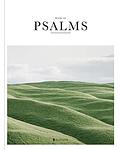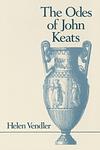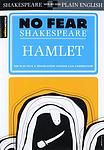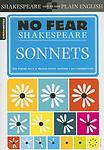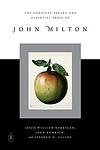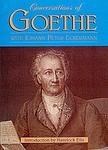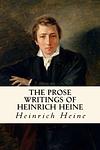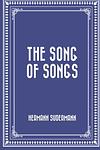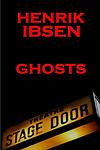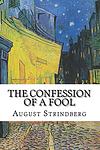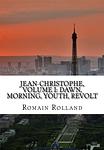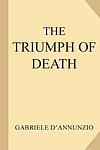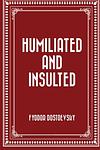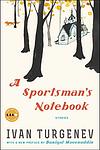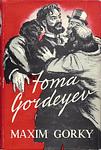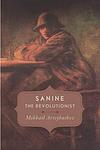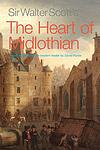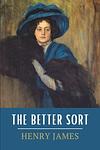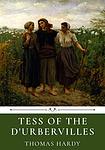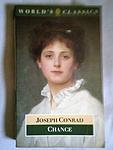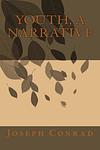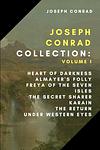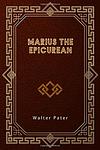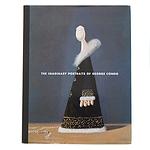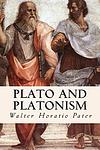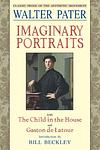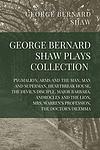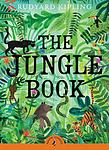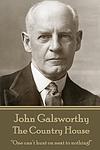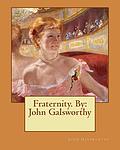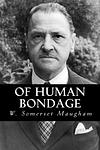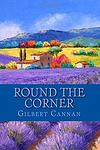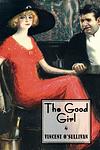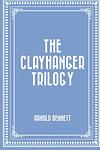One Hundred Best Books (1916)
This is one of the 286 lists we use to generate our main The Greatest Books list.
-
Book Of Psalms by Alabaster Co.
This book is a visually stunning and contemporary rendition of the ancient collection of poetic writings known for their expressions of worship, lament, gratitude, and supplication. It presents the timeless verses in a modern, aesthetically pleasing format, aiming to connect a new generation of readers with the spiritual and emotional depth of these sacred texts. Through beautiful photography and thoughtful design, it offers a unique and contemplative reading experience, inviting reflection and providing comfort, inspiration, and wisdom drawn from one of the most beloved sections of scripture.
-
The Odyssey by Homer
This epic poem follows the Greek hero Odysseus on his journey home after the fall of Troy. It takes Odysseus ten years to reach Ithaca after the ten-year Trojan War. Along the way, he encounters many obstacles including mythical creatures, divine beings, and natural disasters. Meanwhile, back in Ithaca, his wife Penelope and son Telemachus fend off suitors vying for Penelope's hand in marriage, believing Odysseus to be dead. The story concludes with Odysseus's return, his slaughter of the suitors, and his reunion with his family.
-
The Bacchae by Euripides
"The Bacchae" is a classic Greek tragedy where the god Dionysus, disguised as a mortal, returns to his birthplace in Greece to punish the impious King Pentheus who denies Dionysus's divine nature and refuses to worship him. The narrative explores themes of revenge, mortality, and the relationship between man and god. Dionysus uses his power to drive the women of the city into a crazed frenzy, leading to a tragic end for King Pentheus and his mother Agave.
-
Odes by John Keats
"Odes" is a collection of poems that reflect on themes of love, beauty, death, and the passage of time. Through vivid imagery and powerful emotion, the author explores the human condition and our place in the world, often drawing on classical mythology and the natural world for inspiration. The poems are known for their intense lyricism and complex structure, making them some of the most celebrated in English literature.
-
Attis And Other Poems by Catullus
"Attis and Other Poems" is a collection of lyrical works that delve into themes of love, desire, and personal anguish. The poems are characterized by their emotional intensity and vivid imagery, often reflecting the poet's own tumultuous love affairs and inner turmoil. The titular poem, "Attis," stands out with its mythological narrative and exploration of themes such as identity and transformation. Throughout the collection, the poet's mastery of language and form is evident, as he skillfully weaves together personal experiences with broader reflections on human nature and the complexities of the human heart.
-
The Divine Comedy by Dante Alighieri
In this epic poem, the protagonist embarks on an extraordinary journey through Hell (Inferno), Purgatory (Purgatorio), and Paradise (Paradiso). Guided by the ancient Roman poet Virgil and his beloved Beatrice, he encounters various historical and mythological figures in each realm, witnessing the eternal consequences of earthly sins and virtues. The journey serves as an allegory for the soul's progression towards God, offering profound insights into the nature of good and evil, free will, and divine justice.
-
Gargantua and Pantagruel by Francois Rabelais
"Gargantua and Pantagruel" is a satirical and humorous tale of two giants, Gargantua and his son Pantagruel. The narrative is filled with bawdy humor, wordplay, and grotesque and exaggerated characters, reflecting the realities of 16th-century France. The book is also known for its profound insights on education, religion, and politics, often criticizing the corruption and hypocrisy of the powerful. The novel is a rich blend of fantasy, comedy, and philosophical discourse, making it a classic of Renaissance literature.
-
Candide by Voltaire
"Candide" is a satirical novel that follows the adventures of a young man, Candide, who is living a sheltered life in an Edenic paradise and being indoctrinated with Leibnizian optimism by his mentor. When he is expelled from the paradise for kissing a baron's daughter, he embarks on a journey around the world, witnessing the horrors of war, natural disasters, and human cruelty. Throughout his journey, Candide maintains his optimistic philosophy, despite the constant hardships he faces, ultimately concluding that one must cultivate their own garden, a metaphor for taking control of one's own destiny.
-
First Folio by William Shakespeare
This collection is a compilation of 36 plays by a renowned English playwright, published seven years after his death. It includes comedies, histories, and tragedies, some of which had never been published before. Notable works in the compilation include "Macbeth," "Julius Caesar," "Twelfth Night," "The Tempest," and "As You Like It." The collection is considered one of the most influential books ever published in the English language, as it preserved many of the playwright's works that might have otherwise been lost.
-
The Sonnets by William Shakespeare
"The Sonnets" is a collection of 154 poems that explore themes such as love, beauty, politics, and mortality. The sonnets are written in a specific form that the poet popularized, consisting of 14 lines with a specific rhyme scheme. The collection is divided into two sections: the first 126 sonnets are addressed to a young man, while the last 28 are addressed to a woman known as the 'dark lady'. This collection is widely considered one of the greatest achievements in English literature.
-
The Complete Poetry and Essential Prose of John Milton by John Milton
This book is a comprehensive collection of the well-known English poet's work, including his complete poetry and essential prose. It provides readers with a deep dive into his profound and influential writings that range from religious and political themes to classic epic literature. The volume also includes his most famous pieces, such as "Paradise Lost", "Paradise Regained", and "Samson Agonistes". The collection is accompanied by detailed notes and commentary, offering insights into the historical and literary context of the works.
-
Religio Medici by Sir Thomas Browne
"Religio Medici" is a deeply personal essay that explores the author's spiritual beliefs and philosophical thoughts on religion and medicine. Written in the 17th century, the text delves into the author's reflections on the nature of faith, the relationship between science and religion, and the practice of medicine as a spiritual calling. The author argues for a rational and tolerant approach to religious understanding, advocating for the coexistence of scientific inquiry and religious faith. The work is known for its eloquent prose and the introspective examination of the author's own beliefs and experiences, offering a unique insight into the intellectual landscape of the time.
-
Faust by Johann Wolfgang von Goethe
The book is a tragic play in two parts that tells the story of a scholarly man named Faust, who becomes dissatisfied with his life and makes a pact with the devil, Mephistopheles. In exchange for unlimited knowledge and worldly pleasures, Faust agrees to give his soul to Mephistopheles after death. The narrative explores themes of ambition, despair, love, and redemption, ultimately leading to Faust's salvation.
-
Wilhelm Meister's Apprenticeship by Johann Wolfgang von Goethe
"Wilhelm Meister's Apprenticeship" is a classic coming-of-age story that follows the protagonist, Wilhelm, through his journey of self-discovery. Caught between his bourgeois background and his aspirations to become an actor, Wilhelm embarks on an odyssey that introduces him to a variety of characters and experiences. The novel explores themes of love, loss, and the pursuit of artistic excellence, while also critiquing the social norms and expectations of the time.
-
Conversations Of Goethe With Johann Peter Eckermann by Johann Wolfgang von Goethe, Johann Peter Eckermann
This book is a compilation of detailed discussions between one of Germany's greatest literary figures and his close friend and secretary, spanning from 1823 to 1832. It offers an intimate glimpse into the mind, thoughts, and philosophies of the celebrated writer, covering a wide array of subjects including literature, art, science, and the nature of human existence. Through these conversations, readers are provided with profound insights into the intellectual landscape of early 19th-century Europe and the personal reflections of a man who shaped modern German literature. The dialogues are not only significant for their historical context but also for their enduring relevance to contemporary discussions on culture and creativity.
-
Thus Spake Zarathustra by Friedrich Nietzsche
This philosophical novel explores the idea of the Übermensch, or "Overman," a superior human being who has achieved self-mastery and created personal meaning in life. The protagonist, Zarathustra, descends from his solitary life in the mountains to share his wisdom with humanity. Through a series of speeches and encounters, he challenges traditional beliefs about good, evil, truth, and religion, and advocates for the transcendence of man into a higher form of existence. The book is noted for its critique of morality, its poetic and often cryptic language, and its exploration of complex philosophical concepts.
-
The Gay Science by Friedrich Nietzsche
The book in question is a philosophical work that delves into the author's ideas on morality, truth, and the nature of human existence. It is known for its poetic and aphoristic style, presenting a critique of contemporary culture and the Western intellectual tradition. The author introduces the concept of the "eternal recurrence" and famously proclaims the "death of God," challenging readers to confront the implications of a world devoid of divine authority and to embrace the potential for creating their own values. The work is a celebration of art, science, and the joyous wisdom that comes from living a life of intellectual inquiry and creative freedom.
-
Ecce Homo by Friedrich Nietzsche
This philosophical autobiography offers a profound insight into the mind of one of the most influential thinkers of the 19th century. Through a series of essays, the author reflects on his life, works, and the development of his philosophical ideas, presenting his own critique of modern culture, morality, and the essence of human nature. With a provocative and often controversial tone, the book challenges conventional beliefs and encourages readers to reevaluate their perspectives on truth, religion, and the concept of the "Übermensch." It stands as a bold declaration of the author's intellectual independence and a cornerstone of existential thought.
-
The Prose Writings Of Heinrich Heine by Heinrich Heine
This collection showcases the diverse prose works of a renowned 19th-century German poet, offering readers a rich tapestry of essays, travelogues, and critical studies. The author's sharp wit and insightful observations are evident throughout the texts, which cover a wide range of subjects from the cultural landscapes of Europe to the intricate dynamics of Jewish identity and the philosophical undercurrents of his time. Known for his lyrical poetry, the author's prose writings reveal a different facet of his genius, blending eloquence with a critical, often satirical edge that challenges societal norms and provides a compelling commentary on the human condition.
-
The Song Of Songs by Hermann Sudermann
This novel delves into the complexities of love, passion, and societal expectations through the story of a talented young musician who becomes entangled in a tumultuous relationship with a woman of higher social standing. Set against the backdrop of late 19th-century Germany, the narrative explores themes of artistic ambition, class disparity, and the struggle for personal fulfillment. As the protagonist navigates the challenges of his love affair and the pursuit of his musical career, the book offers a poignant examination of the sacrifices one must make for love and art, and the often-painful consequences of defying societal norms.
-
The Fool In Christ: Emmanuel Quint by Gerhart Hauptmann
This novel delves into the life of Emmanuel Quint, a man who, amidst the turmoil of early 20th-century Germany, believes himself to be a modern-day messiah. His profound spiritual convictions and miraculous healings draw a fervent following, yet also attract scorn and skepticism from society and religious authorities. As he embarks on a tumultuous journey of faith, Quint's radical teachings and the controversies surrounding his actions challenge the established norms and beliefs of the time, leading to profound reflections on spirituality, morality, and the nature of divinity. The narrative explores the fine line between madness and sanctity, ultimately questioning the essence of truth and redemption in a world resistant to change.
-
Selected Plays of Henrick Ibsen by Henrik Ibsen
This compilation includes a selection of plays by a renowned Norwegian playwright, who is often referred to as the father of realism. The collection showcases his talent for exploring complex human emotions, societal expectations, and moral dilemmas. The plays often feature strong female characters, a rarity for the time, and challenge the norms of the 19th-century society, making them timeless and relevant even today.
-
The Confession Of A Fool by August Strindberg
This novel is a deeply personal account of love, betrayal, and the tumultuous inner workings of its narrator's mind. Written as an autobiographical confession, it delves into the complexities of marriage, the pain of infidelity, and the struggle for understanding within the confines of societal expectations. The protagonist's introspective journey through his failed relationship exposes the raw emotions and psychological turmoil that accompany love and loss. Through his narrative, the book explores themes of gender roles, mental anguish, and the quest for self-realization amidst the ruins of a shattered love.
-
The Essential Writings of Ralph Waldo Emerson by Ralph Waldo Emerson
This book is a comprehensive collection of works by a renowned American philosopher and poet. It includes his most influential essays, lectures, and poetry, providing readers with a deep insight into his thoughts on nature, self-reliance, love, friendship, freedom, and the importance of intellectual independence. The book serves as a guide to the author's transcendental philosophy and his belief in individualism, nonconformity, and the inherent goodness of man and nature.
-
The Poems of Walt Whitman by Walt Whitman
This collection of poems showcases the work of one of America's most influential and innovative poets. The book features a diverse range of themes, from nature and love to death and the human spirit, reflecting the author's unique and groundbreaking use of free verse. The poet's celebration of democracy, his love for America, and his belief in the fundamental equality of all people are also strongly evident throughout the collection.
-
Spoon River Anthology by Edgar Lee Masters
"Spoon River Anthology" is a collection of short free-form poems that tell the epitaphs of the residents of a fictional small town, Spoon River, which is modeled after the small towns of the author's youth. The poems reveal the honest, often harsh realities of life, as each deceased citizen tells their own tale of love, despair, success, failure, and the human condition. The book is a commentary on the hypocrisy, moral corruption, and societal constraints of early 20th century rural America.
-
The Titan by Theodore Dreiser
"The Titan" is a novel that continues the story of a ruthless and ambitious businessman as he expands his empire in the early 20th-century United States. Having conquered the streetcar industry, the protagonist now sets his sights on utilities and finance, using his wealth and power to manipulate stock markets, bribe officials, and crush any opposition. His personal life is equally tumultuous, filled with affairs and scandals that threaten his marriage and social standing. This narrative serves as a critique of the American Dream and the capitalist fervor of the time, exploring themes of greed, corruption, and the quest for power at the expense of ethics and human relationships.
-
Don Quixote by Miguel de Cervantes
This classic novel follows the adventures of a man who, driven mad by reading too many chivalric romances, decides to become a knight-errant and roam the world righting wrongs under the name Don Quixote. Accompanied by his loyal squire, Sancho Panza, he battles windmills he believes to be giants and champions the virtuous lady Dulcinea, who is in reality a simple peasant girl. The book is a richly layered critique of the popular literature of Cervantes' time and a profound exploration of reality and illusion, madness and sanity.
-
The Toilers Of The Sea by Victor Hugo
The novel is a tale of love and heroism set on the Channel Island of Guernsey, where a reclusive fisherman falls in love with the beautiful niece of a local shipowner. When her uncle's ship is wrecked on a treacherous reef, the fisherman heroically volunteers to salvage the engine that could save the shipowner from ruin, hoping to win the niece's heart. The story unfolds as a gripping adventure of man against the sea, as the protagonist battles the elements, isolation, and his inner demons on his quest, exploring themes of nature's indifference to human struggle, the dignity of labor, and the human spirit's capacity for courage and sacrifice.
-
Father Goriot by Honoré de Balzac
"Father Goriot" is a classic French novel that explores the themes of wealth, power, love, and social status in 19th century Paris. The narrative follows the lives of three main characters: a young, ambitious law student who seeks to rise above his modest background; an elderly, once-wealthy man who has sacrificed everything for his two ungrateful daughters; and a crafty, ruthless criminal who manipulates others for his own gain. Their stories intertwine in a boarding house, revealing the harsh realities of Parisian society and the destructive power of unchecked ambition and selfishness.
-
Cousin Bette by Honoré de Balzac
"Cousin Bette" is a novel set in mid-19th century Paris, focusing on the lives of the Hulot family and their cousin, Bette, an old maid who harbors a deep resentment towards her relatives due to their wealth and social status. When Bette learns that her cousin's husband is having an affair, she decides to exact revenge by manipulating various characters and situations, leading to the downfall of the Hulot family. The novel explores themes of jealousy, revenge, and the destructive power of repressed feelings.
-
Lost Illusions by Honoré de Balzac
"Lost Illusions" is a sweeping narrative that focuses on the life of a young, ambitious poet from the provinces who moves to Paris in hopes of making a name for himself. Over time, he becomes disillusioned with the corruption and moral decay of the city's literary and high society circles. The protagonist's journey is marked by his struggle to maintain his integrity and idealism in a world dominated by materialism and selfish interests. The novel is a critical commentary on the destructive power of unchecked ambition and the pitfalls of vanity.
-
The Human Comedy by Honoré de Balzac
"The Human Comedy" is a series of interconnected novels and stories that depict the lives, ambitions, and failures of a wide range of characters in French society during the first half of the 19th century. The series explores the complexities of human nature and society, offering a panorama of French life from the aristocracy to the working class. It presents a detailed and vividly realistic portrayal of the social, political, and economic life of the time.
-
Stories of Guy de Maupassant by Guy de Maupassant
This book is a collection of short stories from a renowned French author, known for his masterful storytelling and keen observations of human nature. The narratives delve into various aspects of life, from love and loss to morality and deception, showcasing the author's ability to capture the complexity of human emotions and experiences. His stories often carry a cynical tone, reflecting the harsh realities of life, and are noted for their surprise endings.
-
The Red and the Black by Stendhal
The novel is a detailed psychological portrait of Julien Sorel, a young man from a provincial background who aspires to rise above his humble beginnings. He uses his intelligence and hypocrisy to advance in the post-Napoleonic French society, which is deeply divided by class and political loyalties. The story is a critique of the society's materialism and hypocrisy as Julien's ambitions lead him to a tragic end. The title refers to the contrasting uniforms of the army and the church, the two routes available to him for upward mobility.
-
The Opinions Of Jerome Coignard by Anatole France
This book presents a collection of philosophical and satirical essays that delve into the musings and reflections of the titular character, a learned but somewhat dissolute priest. Through his eyes, readers are treated to a critique of society, religion, and human nature, all conveyed with a blend of cynicism and humor. The character's erudition and wit make for engaging discourse on various subjects, from morality to the mundane, offering a rich tapestry of thoughts that mirror the complexities of life. The work stands as a testament to the author's skill in weaving together insightful commentary with entertaining narrative, inviting readers to ponder the deeper nuances of existence and belief.
-
The Elm Tree On The Mall by Anatole France
This book is a collection of philosophical tales and essays that delve into the complexities of human nature, society, and morality. Through the central metaphor of an elm tree located on a mall, which serves as a silent observer to the unfolding human dramas around it, the author explores themes of love, justice, faith, and the pursuit of truth. The narrative weaves together the lives of various characters, each representing different facets of society, and through their interactions and reflections, the book offers a profound commentary on the human condition and the eternal search for meaning and beauty in life.
-
My Friend's Book by Anatole France
This narrative delves into the complexities of friendship, intellectual pursuit, and the often blurred lines between reality and the world of books. Through the lens of a protagonist who becomes deeply engrossed in his friend's literary work, the story explores themes of obsession, the impact of literature on life, and the profound connections that can form through shared intellectual endeavors. As the protagonist navigates his relationship with his friend and the book, readers are invited to reflect on the power of written words to shape our perceptions, relationships, and understanding of the world around us.
-
A Night In The Luxembourg by Remy de Gourmont
This book is a reflective and philosophical exploration set against the backdrop of the Luxembourg Gardens in Paris. Through a series of essays, the narrative delves into the musings and observations of the protagonist during his nocturnal visits to the garden. The text is rich in poetic imagery and philosophical insights, touching upon themes of love, beauty, and the transient nature of life. The author uses the serene and historical setting of the Luxembourg Gardens as a canvas to explore the complexities of human emotion and thought, making it a meditative and thought-provoking read.
-
The Disciple by Paul Bourget
The novel explores the complex relationship between a young, impressionable student and his charismatic mentor, a philosopher with radical ideas. As the student becomes increasingly influenced by his mentor's theories, he begins to apply them to his own life, leading to tragic consequences. The narrative delves into themes of morality, the impact of intellectual thought on personal behavior, and the responsibility of those who wield influence over others. Set against the backdrop of late 19th-century France, the story serves as a cautionary tale about the dangers of blindly following a charismatic leader without critical thought.
-
Jean Christophe by Romain Rolland
This expansive novel chronicles the life of a gifted German musician, from his early years in a Rhineland village, through his turbulent development as an artist, to his maturity and recognition as a composer. Set against the backdrop of Europe's cultural and political landscape at the turn of the 20th century, the protagonist's journey is one of passion, struggle, and the relentless pursuit of artistic freedom. Through his friendships, loves, and artistic endeavors, the narrative delves into themes of personal growth, the nature of genius, and the universal search for meaning. The protagonist's life story is a testament to the power of resilience and the indomitable spirit of the creative mind.
-
The Flame Of Life by Gabriele D'Annunzio
"The Flame of Life" is a novel that delves into the passionate and tumultuous affair between a famous writer and a Venetian noblewoman. Set against the backdrop of early 20th-century Venice, the narrative explores themes of love, art, and the quest for immortality through creation. The protagonist's obsession with leaving a lasting legacy is mirrored in the intense and consuming relationship he shares with his lover, making the city of Venice a central character in their story. The novel is rich in symbolic imagery and poetic language, reflecting the author's fascination with beauty, decadence, and the complexities of the human soul.
-
The Triumph Of Death by Gabriele D'Annunzio
This novel delves into the life of Giorgio Aurispa, a man who, amidst the decadence of Italian society, embarks on a journey of self-discovery and existential questioning. Through his relationships, particularly with the enigmatic Ippolita Sanzio, and his experiences across various European locales, Giorgio confronts themes of love, death, and the search for meaning. The narrative, rich with symbolic imagery and poetic language, explores the depths of human emotion and the inevitable confrontation with mortality, culminating in a profound exploration of the human condition and the pervasive sense of disillusionment that characterized the turn of the century.
-
Crime and Punishment by Fyodor Dostoevsky
A young, impoverished former student in Saint Petersburg, Russia, formulates a plan to kill an unscrupulous pawnbroker to redistribute her wealth among the needy. However, after carrying out the act, he is consumed by guilt and paranoia, leading to a psychological battle within himself. As he grapples with his actions, he also navigates complex relationships with a variety of characters, including a virtuous prostitute, his sister, and a relentless detective. The narrative explores themes of morality, redemption, and the psychological impacts of crime.
-
The Idiot by Fyodor Dostoevsky
The book follows the story of a kind-hearted and naive protagonist who returns to Russia from a Swiss sanatorium, where he was treated for a severe epileptic condition. Despite his pure intentions, he gets entangled in a web of love, greed, and manipulation, leading to tragic consequences. The novel explores themes of innocence, love, sacrifice, and societal expectations, offering a profound critique of Russian society during the 19th century.
-
The Brothers Karamazov by Fyodor Dostoevsky
This classic novel explores the complex, passionate, and troubled relationship between four brothers and their father in 19th century Russia. The narrative delves into the themes of faith, doubt, morality, and redemption, as each brother grapples with personal dilemmas and family conflicts. The story culminates in a dramatic trial following a murder, which serves as a microcosm of the moral and philosophical struggles faced by each character, and by extension, humanity itself.
-
Demons by Fyodor Dostoevsky
"The Possessed" is a complex political novel set in a provincial Russian town, exploring the destructive influence of radical ideologies on society. The narrative revolves around a group of revolutionaries, their philosophical debates and their destructive actions, driven by nihilism and anarchism. The story is a critique of the political and social chaos of the time, showcasing the author's deep understanding of human psychology and his profound insights into the human condition. It is an exploration of faith, reason, and the nature of freedom and is considered one of the most significant works of Russian literature.
-
Humiliated And Insulted by Fyodor Dostoevsky
This novel delves into the complex emotional and psychological landscapes of its characters, focusing on a young writer who becomes entangled in the lives of an orphaned girl, his unrequited love, and a friend who betrays him. Set against the backdrop of 19th-century Russia, the narrative explores themes of redemption, love, and the human capacity for forgiveness amidst societal decay and personal despair. Through its intricate portrayal of relationships and moral dilemmas, the story examines the depths of human suffering and the potential for humility and compassion to emerge from humiliation and insult.
-
A Sportsman's Notebook by Ivan Turgenev
"A Sportsman's Notebook" is a collection of vignettes and short stories that offer a rich portrayal of 19th-century Russian rural life and landscapes, as observed by a nobleman with a passion for hunting. Through his excursions into the countryside, the narrator encounters a diverse array of peasants and landowners, revealing the social injustices and feudal systems that define their existence. The work is notable for its detailed natural descriptions, its empathetic character studies, and its subtle critique of the era's social hierarchy, which would eventually contribute to the rise of reformist thought in Russia.
-
Virgin Soil by Ivan Turgenev
This novel explores the life and aspirations of a young man who, inspired by the radical movements of his time, leaves his urban life to engage in the populist cause of the 1860s in Russia. Through his journey, the narrative delves into the complexities of the Russian social structure, the serfdom system, and the fervent, albeit often naive, idealism of the youth seeking to reform their society. The protagonist's encounters with peasants, intellectuals, and fellow revolutionaries, alongside his personal struggles and disillusionments, paint a vivid picture of the era's tumultuous social and political landscape, reflecting the broader ideological conflicts between the old and the emerging new Russia.
-
Foma Gordeyev by Maxim Gorky
This novel delves into the life of Foma Gordeyev, a young man who inherits a vast business empire from his powerful and wealthy father. Struggling to find his place in a world driven by greed and corruption, Foma becomes disillusioned with the moral decay he sees in those around him, including his own family. As he grapples with his ideals and the harsh realities of human nature and society, Foma's journey is a poignant exploration of the quest for meaning in a materialistic world. The narrative, rich in philosophical introspection, captures the tumultuous changes of Russia at the turn of the 20th century, reflecting on the individual's struggle against the tide of societal norms and expectations.
-
The Seagull by Anton Chekhov
The play revolves around the complex interplay of love, art, and the pursuit of happiness among a group of characters gathered at a Russian country estate. Central to the narrative is a young aspiring playwright, who yearns for the recognition of his art and the love of a woman, an actress infatuated with a successful writer. The story unfolds as these characters grapple with unrequited affections, artistic ambitions, and the crushing weight of societal expectations, leading to a tapestry of human desires, disillusionment, and the search for meaning in life.
-
Sanin by Mikhail Artsybashev
This novel is a controversial work that delves into the life and philosophies of its protagonist, a young man who embodies the principles of free love and rejects the conventional moral values of society. Set in the Russian Empire at the turn of the 20th century, the narrative explores themes of individualism, hedonism, and the pursuit of personal happiness above societal norms. The protagonist's radical views and actions challenge the traditional moral fabric and provoke reflection on the nature of freedom, love, and the constraints imposed by society. The book sparked significant debate upon its release due to its candid portrayal of sexuality and its critique of established social mores.
-
Tristram Shandy by Laurence Sterne
The novel is a humorous, rambling narrative that chronicles the life of Tristram Shandy. The story is filled with digressions, anecdotes, and eccentric characters, as Tristram often interrupts his own tale to interject commentary or to recount stories from his family's past. Despite the seemingly haphazard structure, the novel is a clever exploration of narrative form and a satirical critique of traditional biographies and novels.
-
A Tale Of A Tub by Jonathan Swift
The book is a satirical work that critiques various aspects of religion, politics, and society through a narrative that ostensibly tells the story of three brothers, each representing a major branch of Christianity, who inherit coats from their father with instructions not to alter them. However, the brothers each interpret the will differently, leading to a series of allegorical misadventures and modifications to their coats, symbolizing the corruption and misinterpretation of religious doctrines over time. Interspersed with the main narrative are digressions on various topics, showcasing the author's wit and command of irony, as he lambasts intellectual pretentiousness and the follies of his age.
-
Essays by Charles Lamb
The book is a collection of essays that blend autobiography, whimsy, fantasy, and pathos. The author, a noted English essayist, uses his own life experiences as a rich backdrop for his writing, often under the guise of a fictional character. His essays are celebrated for their wit, warmth, and eloquence, and they delve into a wide range of topics, from the joys of childhood to the complexities of human grief. The author's distinctive style and ability to transform the mundane into the extraordinary have secured his place as a master of the personal essay.
-
The Heart Of Midlothian by Sir Walter Scott
The novel is a historical tale set in 18th-century Scotland, revolving around Jeanie Deans, a young woman of strong moral character, who embarks on a daunting journey from Edinburgh to London to seek a royal pardon for her wrongfully accused sister, Effie, who faces execution. Along the way, Jeanie encounters various characters from different strata of society, confronting issues of justice, morality, and national identity. Her steadfast loyalty and unwavering principles highlight the cultural and social tensions of the time, as the narrative intertwines personal drama with broader historical events, including the Porteous Riots and the influence of the Scottish Reformation.
-
Guy Mannering by Sir Walter Scott
The novel unfolds as a tale of prophecy and fate intertwined with the lives of its characters, primarily centering around Henry Bertram, the heir to the estate of Ellangowan, who is kidnapped as a child by smugglers after his father's financial ruin. The story spans over two decades, following Henry's adventures and misadventures as he grows up under an assumed identity. The narrative is rich with themes of loyalty, inheritance, and the supernatural, as the predictions of the astrologer Guy Mannering and the Gypsy matriarch Meg Merrilies play out in the lives of the Bertrams and their acquaintances. Set against the backdrop of the Scottish Lowlands, the tale weaves through a tapestry of social change and personal redemption, culminating in the restoration of family and fortune.
-
The History Of Henry Esmond by William Makepeace Thackeray
The novel is a historical fiction set in the late 17th and early 18th centuries, chronicling the life of its protagonist, an officer in the English army. Born to uncertain parentage, he is raised by a noble family and develops a deep affection for his benefactors' daughter. The narrative follows his experiences in the military, his travels abroad, and his involvement in the political and religious conflicts of the era, including the Jacobite Rebellion. Throughout his life, he grapples with questions of honor, love, and identity, against the backdrop of the shifting fortunes of the British monarchy and the complexities of the society in which he lives.
-
Great Expectations by Charles Dickens
A young orphan boy, living with his cruel older sister and her kind blacksmith husband, has an encounter with an escaped convict that changes his life. Later, he becomes the protégé of a wealthy but reclusive woman and falls in love with her adopted daughter. He then learns that an anonymous benefactor has left him a fortune, leading him to believe that his benefactor is the reclusive woman and that she intends for him to marry her adopted daughter. He moves to London to become a gentleman, but his great expectations are ultimately shattered when he learns the true identity of his benefactor and the reality of his love interest.
-
Pride and Prejudice by Jane Austen
Set in early 19th-century England, this classic novel revolves around the lives of the Bennet family, particularly the five unmarried daughters. The narrative explores themes of manners, upbringing, morality, education, and marriage within the society of the landed gentry. It follows the romantic entanglements of Elizabeth Bennet, the second eldest daughter, who is intelligent, lively, and quick-witted, and her tumultuous relationship with the proud, wealthy, and seemingly aloof Mr. Darcy. Their story unfolds as they navigate societal expectations, personal misunderstandings, and their own pride and prejudice.
-
Wuthering Heights by Emily Brontë
This classic novel is a tale of love, revenge and social class set in the Yorkshire moors. It revolves around the intense, complex relationship between Catherine Earnshaw and Heathcliff, an orphan adopted by Catherine's father. Despite their deep affection for each other, Catherine marries Edgar Linton, a wealthy neighbor, leading Heathcliff to seek revenge on the two families. The story unfolds over two generations, reflecting the consequences of their choices and the destructive power of obsessive love.
-
The Adventures Of Harry Richmond by George Meredith
This novel follows the tumultuous life of Harry Richmond, a young man caught in the whirlwind of his father's grandiose schemes and the complexities of his own coming of age. Through a series of adventures that take him across Europe, Harry navigates the challenges of love, identity, and familial loyalty. Set against a backdrop of wealth and social ambition, the story delves into the intricacies of human relationships, the pursuit of personal growth, and the quest for a sense of belonging. Rich in detail and character development, the narrative explores the highs and lows of Harry's journey towards understanding himself and his place in the world.
-
The Ambassadors by Henry James
The novel centers around a middle-aged man named Lambert Strether who is sent from New England to Paris by a wealthy widow, Mrs. Newsome, to convince her wayward son, Chad, to return home. However, upon arriving in Europe, Strether is charmed by the sophisticated lifestyle Chad has adopted and finds himself questioning the puritanical values of his homeland. He also becomes entangled in romantic relationships and complex social dynamics, leading him to ultimately question his loyalty to Mrs. Newsome. The book explores themes of morality, identity, and the concept of the American versus European lifestyle.
-
The Golden Bowl by Henry James
The Golden Bowl is a complex narrative that revolves around an American woman and her daughter who marry a father and son. The daughter's husband previously had a romantic relationship with the mother's husband, leading to a tense and intricate web of relationships. The novel explores themes of marriage, adultery, and familial bonds, and is renowned for its detailed characterization and intricate plot structure.
-
Wings of the Dove by Henry James
This novel centers around a young woman, Milly Theale, who is terminally ill and wealthy. She becomes the object of a conspiracy by two other characters, Kate Croy and Merton Densher, who are in love but too poor to marry. Kate manipulates the situation so that Densher becomes close to Milly, intending for him to marry her and inherit her wealth when she dies. However, Densher eventually falls in love with Milly, leading to a complex triangle of love, deceit, and moral ambiguity.
-
The Tragic Muse by Henry James
This novel explores the complex interplay between art, politics, and personal ambition through the lives of its characters, primarily focusing on Nick Dormer, who struggles between pursuing a career in politics and his true passion for painting, and Miriam Rooth, an aspiring actress determined to conquer the stage with her talent. Set against the backdrop of late 19th-century London and Paris, the narrative delves into themes of identity, societal expectations, and the sacrifices made for art and personal conviction. The characters' journeys are marked by their interactions with family, friends, and the societal elite, all of which influence their decisions and the paths they ultimately choose.
-
The Soft Side by Henry James
This collection of short stories and essays showcases the author's exploration of the subtler aspects of human nature and relationships. Through a series of narratives, the work delves into the complexities of love, morality, and society, often focusing on the nuanced interactions between characters and the psychological underpinnings of their actions. The stories, set against a variety of backdrops, from the drawing rooms of high society to the more modest settings of everyday life, reveal the author's keen observation and deep understanding of the human condition, highlighting the 'soft side' of life's experiences and the intricate tapestry of emotions that define our existence.
-
The Better Sort by Henry James
This collection of short stories delves into the complexities of social interactions and moral dilemmas among the upper echelons of society, often referred to as "The Better Sort." Through a series of elegantly crafted narratives, the book explores themes of identity, personal integrity, and the nuanced dynamics of social class. The author masterfully employs his signature psychological depth and keen observation to portray the intricacies of human behavior and the subtleties of social conventions, revealing the underlying tensions and contradictions that exist within the seemingly polished and refined world of the elite.
-
Tess of the d'Urbervilles by Thomas Hardy
This is a tragic tale of a young woman named Tess who comes from a poor family in rural England. Tess is sent to work for a wealthy family, where she is seduced by a man who abandons her after she becomes pregnant. The baby dies, and Tess is ostracized by her community. She falls in love with a kind man, but when she confesses her past, he rejects her. Desperate and heartbroken, Tess murders her former seducer and is eventually captured and executed. The novel explores themes of fate, injustice, and the oppressive sexual morals of its time.
-
The Mayor of Casterbridge by Thomas Hardy
The Mayor of Casterbridge is a tragic novel set in the fictional town of Casterbridge, based on Dorchester in the English county of Dorset. The story follows the life of Michael Henchard, a skilled hay-trusser who, in a fit of drunken anger, sells his wife and daughter at a fair. When he sobers up, he is filled with regret and swears off alcohol for 21 years. He works hard and eventually becomes a successful businessman and the mayor of Casterbridge. However, his past returns to haunt him when his wife and daughter come back into his life, leading to a series of events that result in his downfall.
-
The Return of the Native by Thomas Hardy
This classic novel is set in the rustic rural backdrop of Egdon Heath and revolves around the life of Clym Yeobright, a successful diamond merchant who returns to his native land from Paris. His return sparks a chain of events involving love, ambition, betrayal, and tragedy. His love interest, Eustacia Vye, dreams of escaping the monotonous rural life, while his mother disapproves of their relationship. The novel explores the themes of love, fate, chance, and the clash between individuals' aspirations and societal expectations.
-
Far from the Madding Crowd by Thomas Hardy
Set in rural England, the novel follows the story of Bathsheba Everdene, a young and independent woman who inherits her uncle's farm. She becomes the object of affection for three very different men: Gabriel Oak, a sheep farmer; Sergeant Frank Troy, a reckless soldier; and William Boldwood, a prosperous and mature bachelor. The narrative explores love, honor, and betrayal against a backdrop of the changing social and economic landscape of 19th century England.
-
Chance by Joseph Conrad
This novel explores the complex themes of fate, love, and the struggle for personal integrity through the story of Flora de Barral, a young woman whose life is marred by her father's financial disgrace and imprisonment. The narrative unfolds through the perspectives of multiple characters, primarily through the eyes of Marlow, a seasoned seaman, who recounts Flora's journey towards self-discovery and redemption. As Flora navigates the challenges posed by her societal downfall, she encounters Captain Anthony, with whom she develops a tumultuous relationship. Set against the backdrop of maritime life and London society, the novel delves into the intricacies of human nature, the impact of past actions on present circumstances, and the unpredictable nature of chance that can alter the course of one's life.
-
Lord Jim by Joseph Conrad
The novel revolves around a young, idealistic British seaman, who commits a crime of cowardice at sea. He abandons his ship, leaving hundreds of passengers to their fate. He is publicly censured for this act and spends the rest of his life in shameful obscurity in the South Seas, trying to repress the guilt of his past and regain his lost honor. His quest for redemption leads him to a remote island where he gets a chance to prove his courage, but his tragic flaw ultimately leads to his downfall.
-
Victory by Joseph Conrad
Set in the turn-of-the-century Indonesian archipelago, the novel follows Axel Heyst, a detached and enigmatic European who has isolated himself on an island in the company of his Chinese assistant, Wang. Heyst's solitary existence is disrupted when he rescues Lena, a distressed young woman, from a hotel owned by the malevolent Schomberg. The couple's attempt to live a reclusive life together is threatened when three sinister figures arrive on the island, seeking revenge and fortune. The narrative unfolds as a dark tale of love, betrayal, and existential despair, exploring themes of isolation, the consequences of detachment, and the quest for personal victory amidst the inherent corruption of human interactions.
-
Youth, A Narrative by Joseph Conrad
This novella is a captivating tale that centers around the reminiscences of Marlow, a seasoned seafarer, as he recounts his early experiences at sea to a group of friends. The narrative focuses on Marlow's first independent command as a young captain of a ship destined for Bangkok, which carries a cargo of coal. The journey is fraught with challenges, including a fire aboard the ship, which tests the crew's resilience and Marlow's leadership. Through this adventure, the story explores themes of youth, the passage of time, and the nature of memory, as Marlow reflects on the exuberance and optimism of his younger self, contrasting it with his more tempered outlook in later years.
-
Almayer's Folly by Joseph Conrad
This novel tells the story of Kaspar Almayer, a Dutch trader struggling to survive in the Malaysian archipelago. Dreaming of wealth and a return to the comforts of European society, Almayer's ambitions are continually thwarted by his own inadequacies, the treachery of others, and the shifting political landscape. His relationship with his mixed-race daughter, Nina, becomes the emotional core of the story, highlighting themes of cultural identity, colonialism, and the clash between East and West. As Almayer's dreams crumble around him, the novel delves into his descent into despair, painting a poignant picture of a man caught between worlds, unable to belong fully to either.
-
Marius the Epicurean by Walter Pater
"Marius the Epicurean" is a philosophical novel that explores the life of Marius, a young Roman, during the reign of Marcus Aurelius. The narrative follows Marius's intellectual and spiritual development as he navigates the complexities of Roman society, with its intricate blend of paganism and emerging Christianity. The protagonist grapples with existential questions and moral dilemmas, seeking to understand the nature of pleasure, the concept of duty, and the meaning of life. His journey culminates in his conversion to Christianity, symbolizing a shift from sensual pleasure to spiritual fulfillment.
-
Studies In The History Of The Renaissance by Walter Pater
This book is a seminal work of criticism that explores the art, literature, and culture of the Renaissance period. It delves into the aesthetic and philosophical spirit of the era, examining the unique qualities that define Renaissance art and thought. The author's rich prose and contemplative approach emphasize the importance of beauty and the sensory experiences of life, advocating for an appreciation of art as an end in itself. Through a series of essays, the work reflects on the works of various Renaissance figures and the enduring impact of this period on the modern consciousness, ultimately encouraging readers to seek out intense experiences and to cherish the transient beauty in the world around them.
-
Imaginary Portraits by Walter Pater
"Imaginary Portraits" is a collection of fictional character sketches that blend history, philosophy, and aesthetics to explore the inner lives and historical contexts of various imagined figures. These portraits, written with a rich and evocative prose style, delve into the subtleties of human experience and emotion, capturing the essence of individuals who, while not real, represent deeper truths about the human condition. The work is a testament to the author's skill in creating vivid, intellectual landscapes and his ability to probe the psychological and cultural forces that shape artistic and personal identity.
-
Plato And Platonism by Walter Pater
This book offers a comprehensive exploration of Plato's philosophy and its enduring influence on Western thought. The author delves into the intricate relationship between Plato's teachings and the Platonism that emerged in later periods, highlighting how Plato's ideas have been interpreted, adapted, and sometimes transformed by subsequent generations of thinkers. Through a detailed examination of Plato's works, the text reveals the depth and complexity of Platonic philosophy, from its metaphysical, ethical, and epistemological dimensions, to its impact on aesthetics and the development of later philosophical traditions. The author's analysis not only sheds light on Plato's original contributions but also on the broader Platonic legacy, demonstrating its pivotal role in shaping the intellectual landscape of the West.
-
Gaston De Latour by Walter Pater
This literary work is a historical novel that delves into the life and times of its titular character, set against the backdrop of the French Renaissance. It intricately explores themes of art, philosophy, and the human condition through the experiences of its protagonist, a young nobleman navigating the intellectual and cultural vibrancy of 16th-century France. The narrative is rich in historical detail and philosophical insight, reflecting on the complexities of faith, beauty, and the pursuit of knowledge. Through its elegant prose, the novel offers a reflective journey into a period of profound transformation and the inner life of a character caught between the allure of modernity and the traditions of the past.
-
Selected Plays of George Bernard Shaw by George Bernard Shaw
This collection features selected plays by a renowned playwright, showcasing his wit, social criticism, and talent for character development. The plays touch on a wide range of themes, including class struggles, the complexities of love, the absurdity of war, and the pursuit of individual freedom. The author's sharp dialogue and satirical approach make these plays both entertaining and thought-provoking, reflecting his progressive views and his belief in the potential for societal change.
-
Orthodoxy by G. K. Chesterton
"Orthodoxy" is a classic work of Christian apologetics that explores and defends the beliefs that are central to Christian faith. The author presents his personal journey towards faith, arguing for the reasonableness of Christianity. He challenges popular assumptions of his time about religion, faith, and the world while presenting a compelling case for orthodox Christian belief, using both logic and wit. The book combines personal anecdotes, historical critique, and philosophical discourse to present a deeply intellectual and sincere exploration of Christianity.
-
The Importance of Being Earnest by Oscar Wilde
This comedic play revolves around two protagonists who both use the pseudonym "Ernest" to escape their social obligations. Their plans unravel when they fall in love and their betrothed women reveal they are only willing to marry men named Ernest. The situation is further complicated by a case of mistaken identity, a lost handbag, and a surprising revelation about one of the protagonist's parentage. The play uses wit and humor to satirize the social conventions of Victorian England, particularly the importance placed on trivialities.
-
De Profundis by Oscar Wilde
"De Profundis" is a lengthy letter written by a man during his imprisonment for gross indecency, reflecting on his past life and experiences. The letter is addressed to his former lover, and through it, he expresses his feelings of regret, despair, and hope. The man discusses his spiritual journey during incarceration, his newfound understanding of suffering, and his changing views on art and morality. The work is a profound exploration of love, forgiveness, redemption, and the human spirit's resilience.
-
The Jungle Book by Rudyard Kipling
This classic work is a collection of stories set in the Indian jungle, where a human child, Mowgli, is adopted and raised by a pack of wolves. The book follows Mowgli's adventures and lessons learned from his animal friends and foes, including the wise bear Baloo and the cunning panther Bagheera. The book also includes other tales of animals and humans coexisting in the wild, showcasing themes of survival, morality, and the law of the jungle.
-
Alice's Adventures in Wonderland by Lewis Carroll
This novel follows the story of a young girl named Alice who falls down a rabbit hole into a fantastical world full of peculiar creatures and bizarre experiences. As she navigates through this strange land, she encounters a series of nonsensical events, including a tea party with a Mad Hatter, a pool of tears, and a trial over stolen tarts. The book is renowned for its playful use of language, logic, and its exploration of the boundaries of reality.
-
The Country House by John Galsworthy
This novel delves into the complexities of familial bonds, societal expectations, and the inevitable changes brought about by time, set against the backdrop of a grand English country estate. It explores the lives of its inhabitants, who are caught between their loyalty to tradition and the pressures of modernity. Through the lens of a family grappling with their place in a rapidly evolving society, the narrative examines themes of love, duty, and the search for identity. The estate itself becomes a character, symbolizing the fading glory of the British aristocracy and the shifting social landscape of the early 20th century. Through detailed character studies and a richly described setting, the story offers a poignant commentary on the end of an era and the human struggle to find meaning amidst change.
-
The Man of Property by John Galsworthy
"The Man of Property" is a novel set in the late 19th century England, focusing on the wealthy Forsyte family. The story revolves around Soames Forsyte, a successful solicitor who views everything, including his beautiful wife Irene, as property. His possessiveness and inability to comprehend love and passion lead to a marital crisis and a scandal within the family. The novel explores themes of wealth, social status, love, and the concept of property, offering a critique of the materialistic upper-middle-class society of the time.
-
Fraternity by John Galsworthy
This narrative delves into the complexities of early 20th-century English society, exploring themes of social inequality, love, and the intricate dynamics within a bourgeois family. Set against the backdrop of London, it juxtaposes the lives of the wealthy and the impoverished, focusing on the interactions between members of an affluent family and their contrasting attitudes towards the less fortunate. The story critically examines the moral and ethical dilemmas faced by the characters, highlighting the tension between personal desires and societal expectations. Through its detailed portrayal of family relationships and social issues, the novel offers a poignant critique of the class disparities and social injustices of its time.
-
Of Human Bondage by W. Somerset Maugham
The novel follows the life of Philip Carey, a club-footed orphan who struggles with his disability and his passionate and unrequited love for a destructive woman. His journey takes him from a strict religious upbringing in England to an adventurous life in Paris where he attempts to become an artist before finally settling into a career in medicine. The story is a powerful exploration of human desire, ambition, and the search for meaning in life.
-
Round The Corner by Gilbert Cannan
This novel explores the life and growth of its protagonist, a young man who seeks to understand and find his place in the world amidst the complexities of early 20th-century society. Through his journey, he encounters various characters and experiences that challenge his views on love, friendship, and the societal expectations placed upon him. Set against a backdrop of a rapidly changing England, the story delves into themes of personal freedom, the quest for identity, and the pursuit of happiness, all while navigating the nuanced dynamics of human relationships and the societal norms of the time.
-
The Good Girl by Vincent O'Sullivan
The narrative revolves around a young woman's complex journey through societal expectations and personal desires. Set against a backdrop of rigid social norms, the story delves into the protagonist's struggle to conform to the image of the "good girl" that her family and society demand, while also grappling with her own ambitions and desires. Through a series of events that challenge her perceptions and the expectations placed upon her, she embarks on a path of self-discovery, questioning the very foundations of her identity and the societal norms that shape it. The book explores themes of conformity, rebellion, and the quest for individuality in a world that often demands uniformity.
-
The Story Of Louie by G. Oliver Onions
This narrative delves into the life of Louie, a character whose journey is marked by personal growth and transformation. Set against a backdrop that vividly captures the essence of the era, the story explores themes of identity, resilience, and the quest for meaning. Through a series of events that challenge and shape him, Louie's experiences offer a reflective look at the complexities of human nature and the intricate dance between external circumstances and internal change. The author masterfully weaves a tale that is both poignant and enlightening, inviting readers to ponder the depth of their own life stories.
-
Clayhanger by Arnold Bennett
This novel follows the life of Edwin Clayhanger as he transitions from adolescence to adulthood in the provincial town of the Five Towns, an area inspired by the potteries of Staffordshire, England, where the author grew up. The story delves into Edwin's relationship with his domineering father, Darius Clayhanger, who wants him to continue the family printing business, and his personal aspirations and romantic entanglements, particularly with Hilda Lessways. It explores themes of personal freedom, the constraints of societal expectations, and the pursuit of happiness in the face of familial obligations. The narrative is a detailed portrayal of Victorian middle-class life, capturing the complexities of family dynamics, love, and personal growth.
-
The New Oxford Book Of English Verse by Helen Gardner
This anthology is a comprehensive collection of English poetry, spanning centuries from the medieval period to the 20th century. It showcases the evolution of English verse, featuring works from a wide array of poets, both renowned and lesser-known. The selection emphasizes the richness and diversity of English poetic tradition, offering readers a broad spectrum of themes, styles, and perspectives. Edited by a distinguished scholar, the collection is curated to highlight the beauty, complexity, and depth of English literature, making it an essential volume for poetry enthusiasts and a valuable resource for students of English literature.
John Cowper Powys, 98 Books
John Cowper Powys’ Best 100 Books published more than a century ago, in 1916. John Cowper Powys (8 October 1872 – 17 June 1963) was an English novelist, philosopher, lecturer, critic and poet.
Added 16 days ago.
This list has a weight of 38%. To learn more about what this means please visit the Rankings page.
Here is a list of what is decreasing the importance of this list:
- Voters: 1 person voted
- List: only covers mostly "Western Canon" books
If you think this is incorrect please e-mail us at [email protected].
